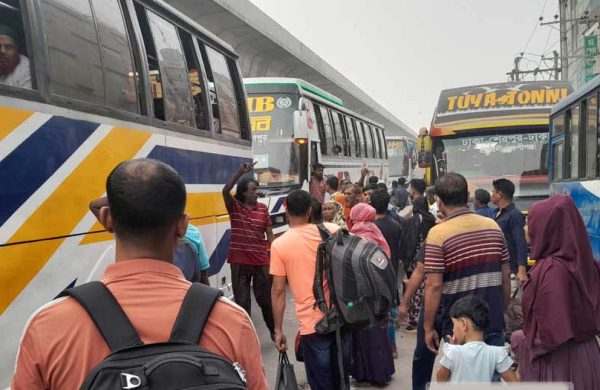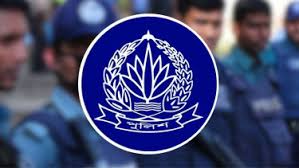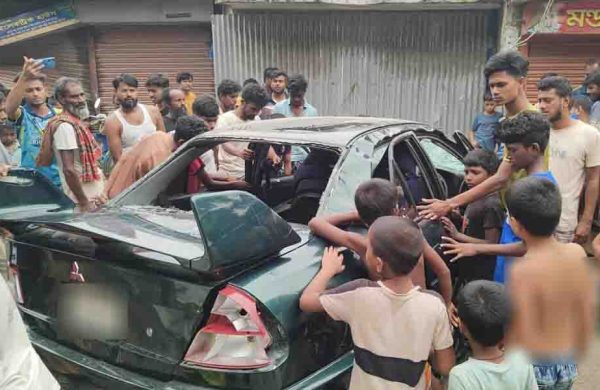Bangladesh issues sweeping road, transport guidelines ahead of Eid-ul-Azha
- Update Time : Thursday, May 22, 2025

Staff correspondent:
As the nation prepares for Eid-ul-Azha, the Road Transport and Highways Division has issued a comprehensive set of directives aimed at easing traffic congestion, ensuring road safety, and maintaining order on highways and in cattle markets during one of the busiest travel periods of the year.
Among the key measures, vehicles transporting sacrificial animals will be required to use the left lane of highways and must clearly display identification banners.
The transport of passengers in goods vehicles will be strictly prohibited.
To reduce traffic congestion, the government has also decided not to lease out 217 designated cattle markets located on or near highways. These markets will be restricted to mapped areas, with clearly defined boundaries.
Separate zones within each market will be designated for loading and unloading cattle, and market authorities must arrange private security.
Mobile courts under city corporations and district administrations will be deployed to ensure proper conduct, with police authorised to take immediate action as necessary.
To manage industrial traffic, factories will be instructed to stagger worker holidays, and trucks, covered vans, and lorries will be banned from highways during the Eid period.
Exemptions will be made for vehicles transporting sacrificial animals, perishable goods, medicines, fuel, garments, fertilisers, and essential food supplies.
The Bangladesh Road Transport Corporation (BRTC) will operate a “Special Eid Service” to mitigate any vehicle shortages and ensure uninterrupted travel from Dhaka to various districts.
Law-enforcing agencies are stepping up oversight ahead of the holiday rush.
Speed limits will be strictly enforced, unfit vehicles will be barred from the roads, and makeshift roadside vehicles and markets will be shut down.
Mobile courts will begin operating 10 days prior to Eid to inspect vehicle workshops and roadside conditions.
To support swift emergency response, wreckers will be on standby to remove vehicles from accident sites.
Emergency medical services and ambulances will be accessible via the national emergency number 999, with the health ministry providing the Highway Police with a list of hospitals along key routes.
Fuel stations will remain open 24/7 from seven days before Eid to five days after to support uninterrupted travel.
To prevent price gouging and overcrowding, mobile monitoring teams will be deployed across 149 known traffic hotspots, including major bus terminals, where fare overcharging and passenger overloading will be strictly penalised.
SUSPENSION OF CONSTRUCTION, REAL-TIME OVERSIGHT
To ease congestion, all road repair work must be completed at least seven days before Eid, and ongoing renovations of key highways, such as the Dhaka-Rangpur and Dhaka-Sylhet thoroughfares, will be suspended for seven days during the holiday period.
At toll plazas operated by the Roads and Highways and Bridges Division, electronic toll booths will operate around the clock to avoid gridlocks.
A central control room will be established the day before Eid holidays begin and will remain operational throughout. Contact details and focal points will be announced separately through an official notice.















